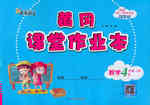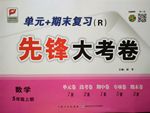


 中考利剑中考试卷汇编系列答案
中考利剑中考试卷汇编系列答案 教育世家状元卷系列答案
教育世家状元卷系列答案 黄冈课堂作业本系列答案
黄冈课堂作业本系列答案 单元加期末复习先锋大考卷系列答案
单元加期末复习先锋大考卷系列答案科目:高中英语 来源:2007年高考福建卷英语试题 题型:阅读理解
When I met him,I had a lot of anger inside of me.I’ve lived my whole life in Spanish Harlem,but in my neighborhood,there are shoot-ups all the time.I know kids who have been shot or beaten up.I have friends who ended up in prison.I could have ended up that way,too,but Mr.Clark wouldn’t let that happen.
Mr.Clark worked long hours,making sure I did my work.My grades rose.In fact,the scores of our whole class rose.One day,he took our class to see The Phantom of the Opera,and it was the first time some kids had ever been out of Harlem.Before the show,he treated us to dinner at a restaurant and taught us not to talk with our mouths full.We did not want to let him down.
Mr.Clark was selected as Disney’s 2000 Teacher of the Year.He said he would draw three names out of a hat;those students would go with him to Los Angeles to get the award.But when the time came to draw names,Mr.Clark said,“You’re all going.”
On graduation day,there were a lot of tears.We didn’t want his class to end.In 2001,he moved to Atlanta,but he always kept in touch.He started giving lectures about education,and wrote a bestselling book based on his classroom rules,The Essential 55.In 2003,Mr.Clark took some of us on a trip to South Africa to deliver school supplies and visit orphanages(孤儿院).It was the most amazing experience of my life.It’s now my dream to one day start a group of women’s clubs,helping people from all backgrounds.
【小题1】Without Mr.Clark,the writer _______.
| A.might have been put into prison |
| B.might not have won the prize |
| C.might have joined a women’s club |
| D.might not have moved to Atlanta |
| A.a show | B.a speech |
| C.a classroom rule | D.a book |
| A.None. | B.Three. | C.Fifty-five. | D.All. |
| A.Mr.Clark went to South Africa because he liked traveling |
| B.Mr.Clark helped to set up a group of women’s clubs |
| C.a good teacher can help raise his or her students’ scores |
| D.a good teacher has a good influence on his or her students |
查看答案和解析>>
科目:高中英语 来源:2010—2011学年江西省上高二中高一上学期期中英语卷 题型:阅读理解
About a year ago, a couple with three children moved into the apartment next door to mine. I never heard any noise from the children, but the parents were always shouting at the kids.
We often met in the hallway when we were coming or going. I always spoke, but the only answer I got was a hello from the four-year-old girl.
One afternoon when I returned, they were just coming out of their apartment and the little girl was holding the door open for the others. I remained in the car doing unnecessary things. But when I looked up I saw the little girl was still holding the door open, waiting for me. I hurried as much as I could and thanked her.
I was really touched by her act of kindness. That afternoon I was at the K-Mart and I bought a white Teddy bear for her. The next day, there was a knock on the door and it was the little girl and her father. She was very proud of the bear and thanked me like I had never been thanked before.
Now when we meet in the hall, we all speak in a friendly manner. As time passes, I don’t hear that yelling as often as before.
Last night we had about four inches of snow. I looked out at my car and wondered how I was going to keep my doctor’s appointment. I went out to remove the snow. But when I opened my front door, I found my car was there with all the snow removed. You couldn’t imagine how I felt at that moment. I thanked that family in my heart.
Isn’t it amazing how a small kind act of a four-year-old girl can change so many things for the better? My guardian angel says that good things come from small acts.
【小题1】 Who did the writer think removed the snow on his car?
| A.That family next door. | B.Someone sent by his doctor. |
| C.Some strangers. | D.The gate keeper. |
| A.The children were very naughty and often made their parents angry. |
| B.Life must be very hard for the parents next door as they had a large family to support. |
| C.The writer put off the appointment with his doctor because of the heavy snow. |
| D.The little girl’s kind act changed the relationship between the writer and her family. |
| A.②-③-①-④-⑤ | B.②-④-①-③-⑤ | C.③-②-④-⑤-① | D.③-④-②-⑤-① |
查看答案和解析>>
科目:高中英语 来源:2010—2011学年四川省米易中学校高一12月月考英语卷 题型:阅读理解
He was 1 1 years old and often went fishing. On the day before bass (鲈鱼) season opened, he and his father were fishing early in the evening.
1 years old and often went fishing. On the day before bass (鲈鱼) season opened, he and his father were fishing early in the evening.
When his pole doubled over, he knew something huge was on the other end. His father watched with admiration as the boy skillfully worked the fish. Finally, he lifted the tired fish from the water. It was the largest one he had ever seen, but it was a bass.
Lighting a match, the father looked at his watch. It was 10 pm — two hours before the season opened. He looked at the fish, then at the boy, saying, “You’ll have to put it back, Son.”
Looking around, he saw no other fisherman or boats. Even so, the boy could tell from his father’s voice that the decision couldn’t be changed. He threw the huge bass into the water. The boy thought that he would never again see such a big fish.
That was 34 years ago. Today the boy is a successful architect (建筑师) in New York. He often takes his son to fish at the same place.
And he was right. He has never again caught such a large fish as the one he got that nigh t long ago. But he does see that same fish… again and again… every time he has an ethical (道德的) decision to make. As his father had taught him, ethics are simple matters of right and wrong. It is only the practice of ethics that is difficult.
t long ago. But he does see that same fish… again and again… every time he has an ethical (道德的) decision to make. As his father had taught him, ethics are simple matters of right and wrong. It is only the practice of ethics that is difficult.
【小题1】Seeing the boy skillfully pulling a big fish out of the water, the father felt __________.
| A.admiring | B.nervous |
| C.worried | D.shocked |
| A.they discussed how to deal with the fish |
| B.the boy threw the bass back into the water gladly |
C.th e father made a decision that the fish must be set free e father made a decision that the fish must be set free |
| D.they were worried that other fisherman might know what they had done |
| A.the father was an architect |
| B.the son never forgets the lesson |
| C.the father used to catch a big bass |
| D.the father made his son feel regretful all his life |
| A.an ethical decision is not difficult to make |
| B.it is hard to tell right from wrong sometimes |
| C.fishing helps you to make right ethical decisions |
| D.it’s easier to make an ethical decision than to carry it out |
查看答案和解析>>
科目:高中英语 来源:2012-2013学年黑龙江双鸭山一中高一上学期期中测试英语试卷(带解析) 题型:阅读理解
Once in a village, the villagers built a new church building and people came from far and wide to see it. They admired its beauty! They said it was the most beautiful building in the world. Up on the roof, a little nail(钉子)heard the people praising everything about the lovely structure – except the nail! No one even knew he was there, and he became very angry and sad.
“If I am not important, nobody will miss me if I quit!” So the nail then released (松开) its hold, got down from the roof, and fell into the mud.
That night it rained and rained. Soon, the board that had no nail was blown away, and the roof began to leak (漏水). The water flowed down along the walls and over the beautiful pictures on the walls. The plaster (石膏) began to fall, the floor was ruined, and the Bible was also ruined by water. All this was because a little nail decided to quit!
But what of the nail? While holding the board, it was not known by others but it was useful. Buried in the mud now, it was useless and would soon be eaten up by rust!
What the story wants to say is that every member is important to a whole group!
You may, like the nail, feel not important at times, but just like the nail, your absence is felt. A big building might fall to pieces. You are important to a group even if you are small.
【小题1】Why did the nail decide to quit?
| A.Because he was not able to hold on any longer. |
| B.Because he was angry and sad without people’s praising him. |
| C.Because he knew a big nail would replace him. |
| D.Because he had finished his task successfully. |
| A.People began to realize the importance of the nail. |
| B.The nail was put in a more important position. |
| C.Many things in the building were ruined and the nail was eaten up by rust. |
| D.The nail regretted his original decision at last. |
| A.no matter how small you seem, you are important to a group |
| B.it is a pity that small people are never looked up to |
| C.quit when it is necessary, and don’t care about what others say |
| D.being valued is important to a man |
查看答案和解析>>
科目:高中英语 来源:广东省揭东一中2009-2010学年高一下学期期末考试试题(英语) 题型:阅读理解
Botany, the study of plants, occupies a special position in the history of human knowledge. For many thousands of years it was the one field of awareness about which humans had anything more than the vaguest (含糊的) of insight. It is impossible to know today just what our Stone Age ancestors knew about plants, but from what we can observe of pre-industrial societies that still exist, a detailed learning of plants and their properties must extremely ancient. This is logical. Plants are the basis of the food pyramid for all living things, even for other plants. They have always been enormously important to the welfare of peoples, not only for food, but also for clothing, weapons, tools, eyes, medicines, shelter, and a great many other purposes. Tribes living today in the jungles of the Amazon recognized accurately hundreds of plants and know many properties of each. To them, botany, as such, has no name and is probably not even recognized as a special branch of knowledge at all.
Unfortunately, the more industrialized we become the farther away we move from direct contact with plants, and the less distinct our knowledge of botany grows. Yet everyone comes unconsciously on an amazing amount of botanical knowledge, and few people will fail to recognize a rose, an apple, or an orchid. When our Neolithic ancestors, living in the Middle East about 10,000 years ago, discovered that certain grasses could be harvested and their seeds planted for richer productions the next season, the first great step in a new association of plants and humans was taken. Grains were discovered and from them flowed the wonder of agriculture; cultivated crops. From then on, humans would increasingly take their living from the controlled production of a few plants, rather than getting a little here and a little there from many varieties that grew wild and the built up knowledge of tens of thousands of years of experience and close relationship with plants in the wild would begin fade away.
1. Which of the following statements about early humans is expressed in the passage?
A. They probably had extensive knowledge of plants.
B. They thought there was no need to cultivate crops.
C. They did not enjoy the study of botany.
D. They placed great importance on the ownership of property.
2. What does the comment “This is logical.” In the first paragraph mean?
A. There is no clear way to determine the extent of our ancestor’s knowledge of plants.
B. It is not surprising that early humans had a detailed knowledge of plants.
C. It is reasonable to assume that our ancestors behaved very much like people in pre-industrial societies.
D. Human knowledge of plants is well organized and very detailed.
3. According to the passage, why has general knowledge of botany begun to fade?
A. People no longer value plants as a useful resource.
B. Botany is not recognized as a special branch of science.
C. Research is unable to keep up with the increasing numbers of plants.
D. Direct contact with a variety of plants has decreased.
4. In the second paragraph, what is the author’s purpose in mentioning “ a rose, an apple, or an orchid”?
A. To make the passage more poetic.
B. To give an example of plant that are attractive.
C. To give botanical examples that all readers will recognize.
D. To explain the variety of botanical life.
5. According to the passage, what was the first great step toward the practice of agriculture?
A. The invention of agricultural tools and machinery.
B. The development of a system of names for plants.
C. The discovery of grasses that could be harvested and replanted.
D. The changing diets of early humans.
查看答案和解析>>
湖北省互联网违法和不良信息举报平台 | 网上有害信息举报专区 | 电信诈骗举报专区 | 涉历史虚无主义有害信息举报专区 | 涉企侵权举报专区
违法和不良信息举报电话:027-86699610 举报邮箱:58377363@163.com